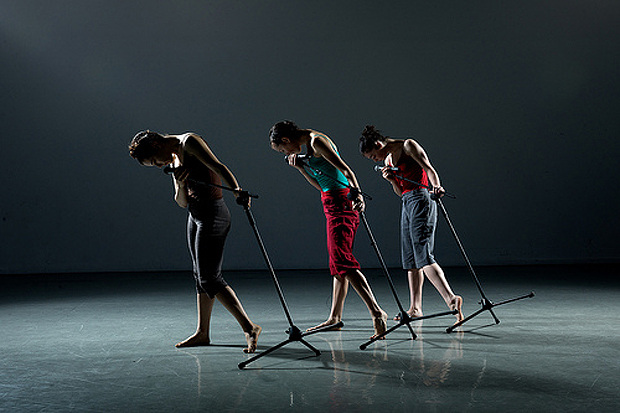Showing @ Festival Theatre, Edinburgh, Tue 30 & Wed 31 Oct – run ended
Israeli company Batsheva’s tour has been dogged by protests, both outside and inside theatres, from those who view the dancers as providing a fig leaf for the policies of their government in the occupied territories. With all that going on it can be difficult to concentrate on the art and artistry on-stage, which is a pity because from a purely dance perspective this is an often powerful, frequently charming and on occasion thought-provoking show.
Unity is the main focus of Ohad Naharin’s company. Unity of form and purpose are at the centre of Batsheva’s thinking and the bringing together of the company members to both powerful and bewitching effect en masse often makes them seem more of a living organism than a dance company. A troupe of flirtatious women on a night out, a line of malfunctioning automata and a platoon of what appear to be rabbinical students are just some of the massed ranks on offer. The latter are used first to create a dance hall setting, bringing up to the stage some delighted, but bewildered audience members, before they switch tone completely to create a commanding, almost threatening, ending.
Outside this final section, the other standout moment is the exotic and homoerotic piece of dance theatre offered at the end of the first half by the male members of the company. It’s a challenging take on sexuality, desire and acceptance, and certainly doesn’t conform to the idea of the show as a safe promotion of the cultural values of Israel’s ruling elite. That unity is at the heart of the individual pieces makes it more surprising that the one weakness in the show is the lack of a thematic strain or connectivity within the show as a whole. A narrative would have felt odd, but some form of loose linking mechanism might have added even more power to the production.
There’s no doubt that the controversy over this show will rumble on and there’s little doubt that future shows will feature disruptions and protests. It’s even possible that some in The Wee Review’s readership might wish we had not covered it, but judged as art and as performance – which is the only criteria we can use – this is a very worthwhile experience.


Comments